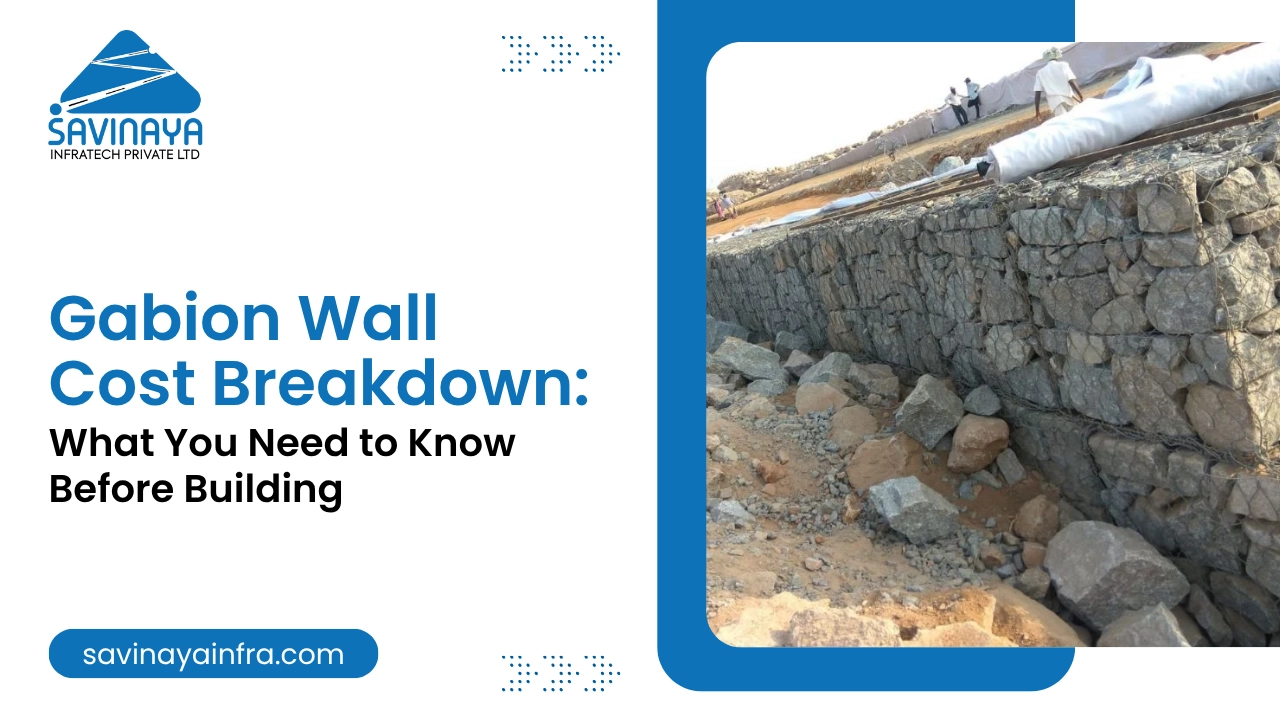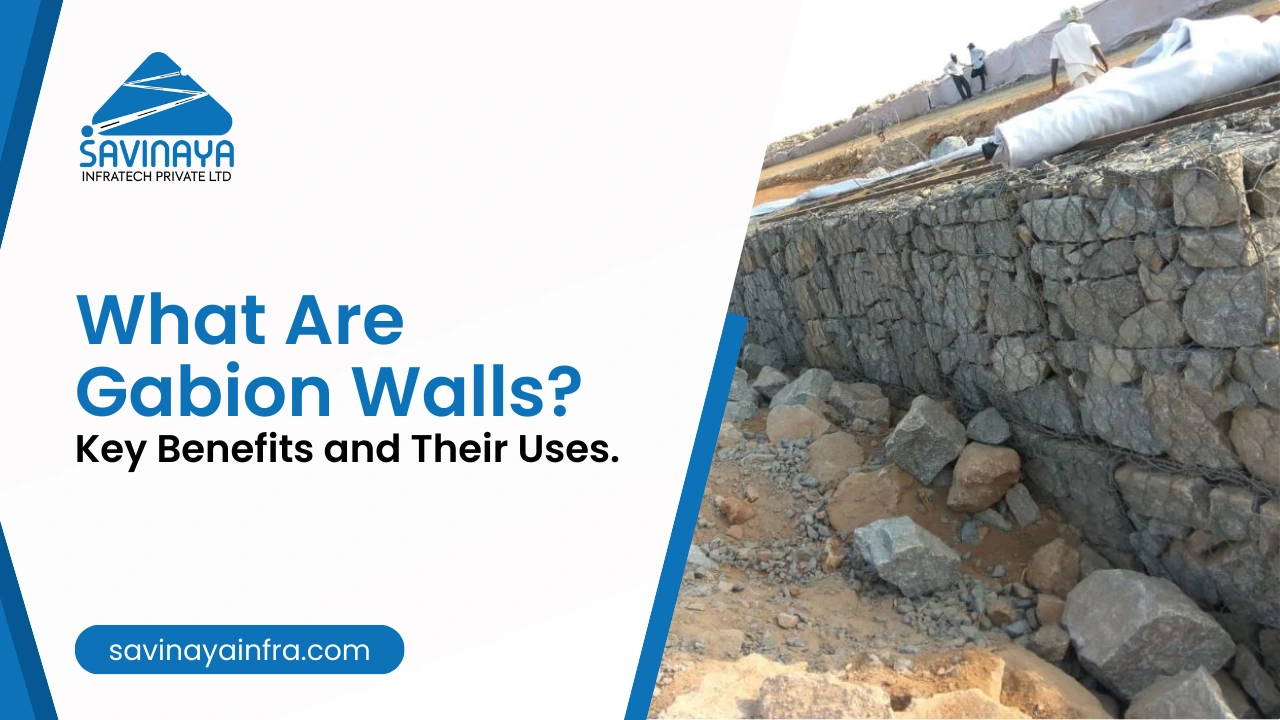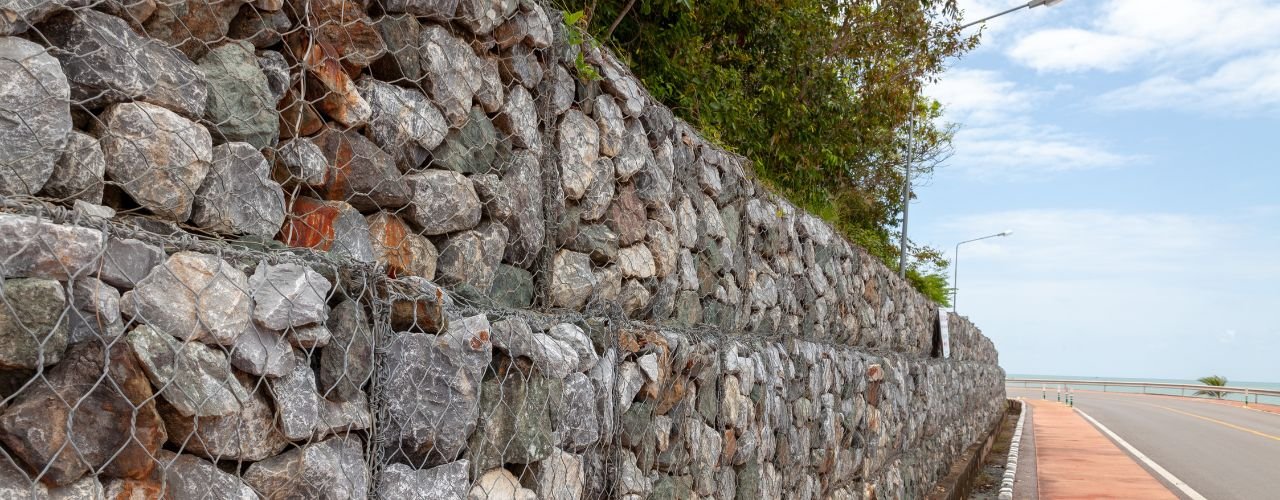
GABION WALLS
ISO 9001:2005 Certified
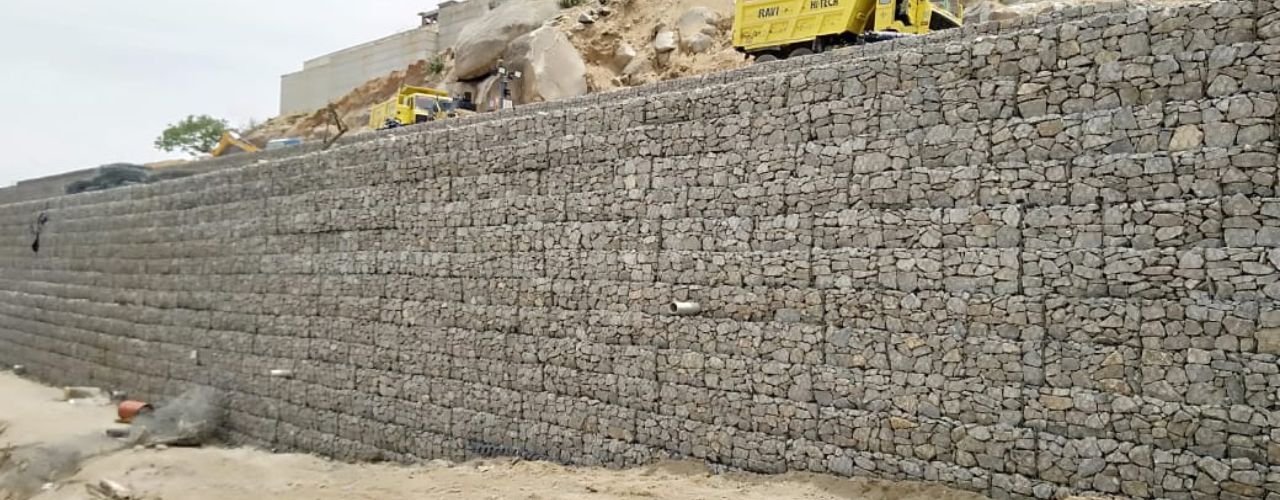
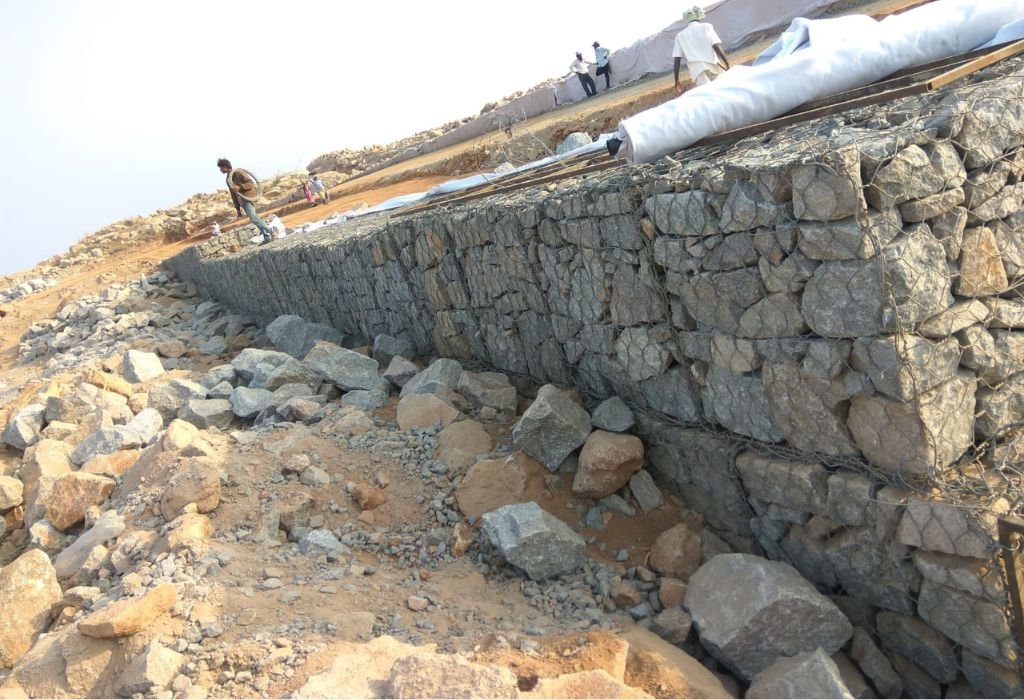
A Gabion Wall is a type of retaining wall made of stacked stone-filled gabions or large cages or baskets. While these walls are executed for soil stabilisation behind the wall, they can be executed as a cover wall. Typically, a Gabion wall will be used in road construction in hilly terrain and can have multiple functions. Draining Capabilities through the wall, while keeping the original slope stabilised makes Gabion wall one Unique solution in Hilly Terrains having high rainfall.
Benefits of Gabion Walls:
Savinaya Infra has all the capabilities to design and build efficient and effective Gabion walls. We have a team of professional civil engineers who can design exclusive soil stabilisation systems for our clients.Contact us today to learn more about our services and how we can help you.
Erosion Control
Gabion walls are an effective way to control soil erosion and stabilize slopes.
Durability
Gabion walls are made of wire mesh and filled with stones or other materials, making them highly durable and able to withstand harsh weather conditions.
Cost-Effective
Gabion walls are generally more cost-effective than other retaining wall options because they require less maintenance and have a longer lifespan.
Environmentally Friendly
Gabion walls are made from natural materials and do not require the use of harmful chemicals, making them an environmentally friendly option.
why choose savinaya infratech
Personalised Attention
At Savinaya Infratech, we treat every project as unique. Our team offers tailor-made geotechnical engineering solutions, ensuring that each recommendation is aligned precisely with your site's specific conditions and project goals.
Honest and Appropriate Solutions
We don’t believe in overengineering or overselling. What we offer is grounded in experience, real site data, and long-term thinking. If a simpler, safer, more cost-effective approach works, that’s what you’ll get. We’re here to solve problems, not create new ones.
Safety First
Every decision we make is guided by safety standards. That includes the safety of your team, our crew, the surrounding area, and future users of the site. We follow strict safety standards, not just because we have to, but because we believe it’s the right thing to do.
Uncompromised Quality
As a trusted partner on national highway and mining projects, Savinaya Infratech delivers industry-leading geotechnical engineering services. Every structure we create stands as a testament to durability, precision, and quality excellence.
FAQs
Yes, we provide complete turnkey gabion wall construction services tailored to infrastructure needs. From design and material sourcing to installation and finishing, we manage every step to ensure a smooth project delivery.
Project duration varies based on size, terrain, and site conditions. Typically, small to medium gabion retaining wall projects take a few weeks, while larger infrastructure projects may require several months for completion.
Absolutely. Our process includes thorough site inspection and soil testing to assess ground conditions. This helps us design a durable gabion wall solution that suits your specific site requirements.
Our strength lies in experienced engineers, quality materials, and customized designs. We prioritize durability, environmental harmony, and efficient construction to deliver superior gabion wall solutions that last.
You can easily request a quote or schedule a site visit by contacting us through the form on our website or calling our office directly. We’ll reach out promptly to discuss the details of your project.
Quality control is integrated into every stage—from material selection to installation. Our supervisors conduct regular inspections and use best practices to ensure the gabion wall meets safety and performance standards.
Yes, we provide dedicated on-site supervision and regular project updates to keep you informed and ensure smooth progress throughout the gabion wall construction. Get in touch with us to know more.
Our gabion wall services are available pan-India. We have the resources and network to serve infrastructure projects across various states and terrains.

